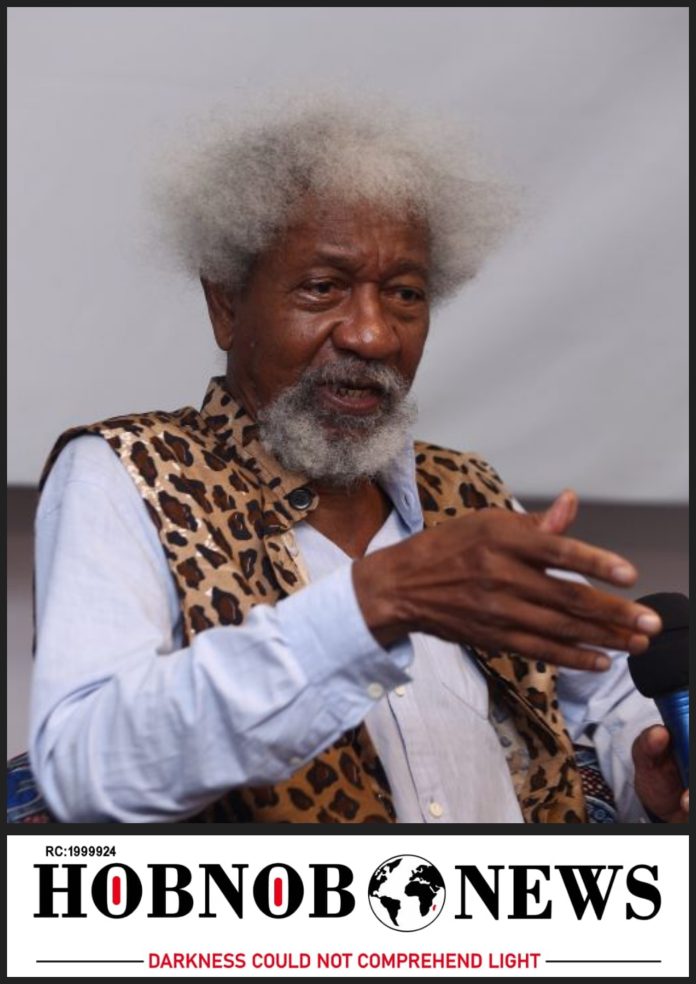Nobel laureate Professor Wole Soyinka has called for the total decentralization of Nigeria.
Soyinka at the Punch 50th Anniversary lecture, asserted that this decentralization is crucial to instigate self-sufficiency and sustainable development within the nation.
Soyinka underscored the resilience of the term “Restructuring,” noting that it persists in public discourse despite attempts by successive elected leaders to evade its implications. His advocacy reflects a deep-seated belief in the imperative of restructuring Nigeria’s governance model, seeking a more equitable distribution of power and enhanced regional autonomy to address challenges and propel the nation towards holistic development.
“Of course, that word means different things for different people – just what is strange and unusual about that? Certain facts however, implicitly admit that the word has a number of common, pragmatic implications for both governance and the governed, that indisputable commonality being as follows: the present contraption is not working – neither economically, developmentally, or even as a material expression of any functional social philosophy.
“Another is that those who come in power have indulged in pretend exercises in that direction, engaging the populace in totally phoney exercises – obviously just to “pacify the natives”. It is surely time that this demand be taken seriously, and addressed head-on,” he said.
Soyinka contends that a wealth of well-reasoned and actionable proposals, found in past conference papers, exists. He points out the presence of both genuine initiatives and deceptive, resource-draining endeavors, strategically invoked to divert attention from self-perpetuation conspiracies within the corridors of power.
“It is high time we stopped the cyclic distraction of re-inventing the wheel. The spokes are in place, the rims intact. Only the will, not the wheel, is missing in action. The Press, needless to urge has a crucial role to play in this! However, be it noted that the Press is only one of the enabling estates – all arms of governance, most pertinently, at state level, have a propulsive, even commanding role to play in the effort.
“Repeatedly, backed by constitutional authorities, both publicly and privately, we have pointed out to them that there is sufficient constitutional leeway in the present protocols of association – if I may quote myself unapologetically – to “push the envelope as far as it can go without actually bursting” – if the centre continues to shirk away from this now strident imperative. I repeat that wearisome call yet again. There can be no further evasion.
“That assertion is made both as a general principle of socio-political volition that is fundamental to any free, truly liberated people, and as informed response to the actualities in which we struggle to exist as a sentient people, responsive to the exigencies of daily manifestation of change.
“To anticipate accustomed banal responses, let me state quite clearly that no one has ever claimed that Decentralisation – a precise word I personally prefer – will end Hunger in the land or terminate religious conflicts and other forms of national malaise, no.
“We simply insist that this is central to the incomplete mission of – nation-being. It is essential to activities of basic existence such as food production, and access to such products.
“Palliatives remain crude, short term, stop-gap measures only. As a veteran of food security working conferences from Uganda to India, from Paris to Sochi, I insist that, for a nation to be food self-sufficient, and sustainably, decentralization is the key, not collectivisation,” Soyinka stated.

